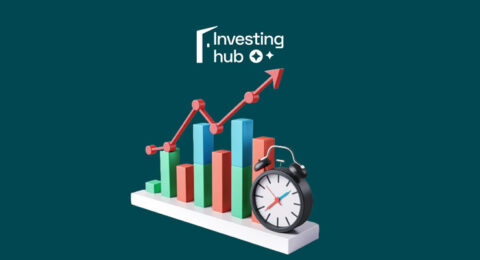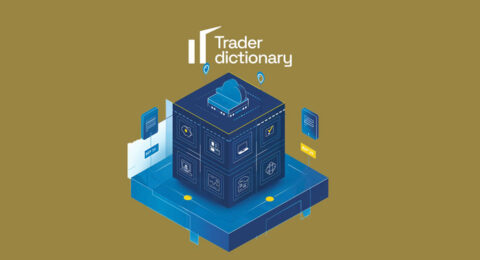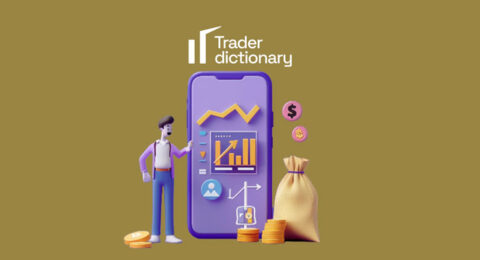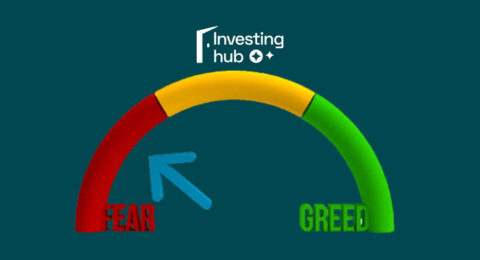In the volatile world of Forex, Crypto, and Stock trading, knowledge and strategy are not the only critical factors for success. Often overlooked, yet immensely important, is trading psychology. This article will delve deep into the souls of successful traders, exploring how they manage emotions, face pressure, and make clear-headed decisions. Join us in uncovering the secrets of trading psychology, and apply these insights to your strategy to achieve success in the financial markets.
Understanding Trading Psychology
Understanding Trading Psychology is an indispensable part when talking about the cornerstone of success in the financial markets. Have you ever wondered why, with the same strategy, the outcomes can be vastly different among traders? The answer lies in their trading psychology.
Trading psychology, my friend, is like the compass that helps us navigate through the storms of the market. It determines how we react to profits and losses, how we stay calm amidst unexpected fluctuations, and how we control our emotions to avoid falling into the traps of greed or fear.
I find that understanding trading psychology also helps us identify and develop necessary qualities such as patience, discipline, and decisiveness. These are the elements that not only help us overcome challenges but also seize opportunities from the smallest market movements.
And you know what? Training in trading psychology is like practicing sports. It requires time, perseverance, and sometimes, accepting failure to learn. But once mastered, you’ll find it to be the key to unlocking success in trading.
Why Trading Psychology is Important
- Why is Trading Psychology Important, you might ask? Entering this world full of temptations and challenges, I’ve often seen myself and many other traders overwhelmed by emotions. Isn’t it true that when the market goes up, greed suddenly surges, wanting to “hold on” a little more? And when the market plunges, fear prompts us to hastily sell off stocks, crypto, or gold we’re holding?
- It’s at those moments that trading psychology becomes a lifesaver. Without controlling emotions, easily getting swept away by the herd mentality, losses can extend beyond finances to include loss of self-confidence and faith in our strategies.
- I believe a solid psychology helps us view issues rationally, making decisions based on analysis and predetermined plans. When you control your psychology, you not only avoid rushed decisions but can also spot opportunities in risks, turning challenges into advantages.
- Therefore, never underestimate the importance of cultivating a strong trading mindset. It’s not just a smart move but a long-term strategy that steadies your journey through the tumultuous trading path.
The Impact of Bias on Trading
Negative Bias
- The Impact of Bias on Trading: Negative Bias significantly influences our trading decisions. Negative bias can cloud our judgment, leading to decisions not based on technical or fundamental analysis. Here are some main points:
- Confirmation bias: I often see people (including myself) easily seeking information that confirms personal beliefs, rather than objectively viewing it. This creates a psychological trap, causing us to overlook important data.
- Fear of failure: The fear of failure often makes us shy away from opportunities that could be profitable just because we’ve failed in similar situations before. This limits the growth potential of our investment portfolio.
- Uncontrolled greed: Sometimes, greed makes us blindly pursue profits without assessing risks, leading to unnecessary risky trading decisions.
- Influence of rumors: In the trading world, rumors can create significant volatility. Negative bias often makes us too credulous of rumors without verification, leading to incorrect trading decisions.
- Fighting the trend: Some investors stubbornly oppose the market trend due to personal bias, not realizing that “the trend is your friend.” This often results in unnecessary losses.
- I’ve also made these mistakes, learning the hard way that investment decisions should be based on analysis and data, not vague biases in our heads.
Gambler’s Fallacy
- This is one of the most common biases I’ve seen many in the trading community succumb to. Let’s explore its impact on trading decisions:
- Misunderstanding of outcome sequences: Many believe that after a losing streak, a win is “due.” This is baseless and can lead to blindly increasing stakes.
- Decisions based on emotions: Believing in this fallacy, traders often let emotions guide them, ignoring technical and fundamental analysis.
- Increased unnecessary risk: Trusting in Gambler’s fallacy often leads traders to accept higher risks without careful calculation.
- Poor capital management: One consequence of this belief is poor capital management, as traders might double or triple their positions hoping to “make up” for prior losses.
- Ignoring market trends: Traders might err in thinking an ongoing trend must “reverse” just because it has persisted for a while, without considering the real reasons behind the trend.
- I always emphasize that recognizing and overcoming misconceptions like Gambler’s fallacy is key to becoming a smart, sustainable trader in the market.
Status Quo Bias
- Status Quo Bias, or the bias towards maintaining the current state, has a strong influence on our trading decisions. Often, I see people (including myself) wanting to keep everything as is, even when new opportunities or risks emerge. Here are some key points about the impact of this bias on trading:
- Resistance to change: I’ve observed many investors preferring the risk of maintaining the current position over changing strategies, even when the market has clearly shifted.
- “If it ain’t broke, don’t fix it” mentality: This common viewpoint leads many to miss out on optimizing profits or minimizing risks.
- Supporting previous decisions: This bias makes us seek information that supports decisions we’ve made before, rather than objectively considering new options.
- Delaying decisions: Wanting to maintain the status quo, we may delay making important decisions, missing the right moment to act.
- Fear of consequences: Sometimes, we hesitate to change because of fear of the consequences of new decisions, even though change could bring significant benefits.
- Recognizing and overcoming the Status Quo Bias is not easy, but if achieved, I’m confident it will open new opportunities and help us become flexible traders, ready to adapt to any market movement.
Improving Trading Psychology
Identifying Personality
Improving trading psychology starts with Identifying Your Own Personality. This is the first and most crucial step to building a solid foundation for your trading process. I want to share some points that I find very useful in identifying and understanding one’s personality:
Self-reflection: Taking time to self-reflect and assess oneself helps you understand your strengths, weaknesses, and reactions to different situations in the market.
Identifying reaction patterns: Recording your emotions and decisions during trading can help identify your reaction patterns to profits and losses.
Emotion control: Understanding your emotions is the first step to controlling them, helping you avoid making trading decisions based on feelings.
Building discipline: Being aware of your personality helps you develop discipline in trading, from adhering to plans to managing risks.
Developing a suitable strategy: Understanding your personality helps you determine the most suitable trading style, thereby developing an effective trading strategy.
Managing pressure: Identifying your personality also helps you find ways to effectively manage pressure and stress, keeping your mood stable in all trading situations.
Through these points, I want you to see that identifying and understanding your personality not only helps improve trading psychology but is also key to achieving confidence and sustainability on your investment journey.
Creating a Trading Plan
Improving trading psychology is incomplete without Carefully and Detailed Planning of Trading. I always emphasize to the trader community that a good trading plan is the map that guides every decision, helping control emotions and maintain rationality. Here are some points I’d like to share:
Defining clear goals: Every trading plan should start with setting specific, measurable, and achievable goals, helping you stay oriented and not get lost in a sea of information.
Entry and exit rules: Being clear about entry and exit points helps avoid emotion-based trading, ensuring each decision is based on thorough analysis and calculation.
Risk management: Defining the risk/reward ratio for each trade and strictly adhering to it helps limit losses and enhances the safety of your investment portfolio.
Analysis methods: The plan should include the analysis method you use to make trading decisions, whether it’s technical analysis, fundamental analysis, or a combination of both.
Trading diary: Recording each trade, including the reason for entry, outcomes, and lessons learned, helps you identify patterns and adjust the plan accordingly.
Review and adjust: The market is always changing, so your trading plan also needs to be periodically reviewed and adjusted to fit new market conditions and your own development.
I believe that carefully planning your trading not only helps you improve trading psychology but is also an important step in moving from an amateur trader to a true professional.
Conducting Research
Improving trading psychology through Conducting Research not only helps you understand the market better but also yourself. I always believe that equipping knowledge is the most powerful weapon every trader needs. Here are some suggestions for conducting effective research:
Market analysis: Start with a thorough analysis of market trends, including both technical and fundamental analysis, to identify opportunities and risks.
Learning from successful traders: Learn about the methods and strategies of successful traders, and draw lessons for yourself.
Studying psychology: Don’t forget that trading psychology is an important part of this process. Deepening your understanding of psychological phenomena like Gambler’s fallacy, confirmation bias, and emotion management can make you a better trader.
Practicing with demo accounts: Use demo accounts to test your knowledge and strategy without real-world risk.
Analyzing trading diaries: This is a great way to review and assess your trading decisions, thereby recognizing patterns and adjusting your strategy accordingly.
Engaging in trading communities: Exchanging and learning from the trading community can broaden your knowledge and understanding, while also providing moral support.
Staying updated with news: Keeping up with news and market updates helps you not be left behind and can react quickly to changes.
Managing Emotions: The Inner Battle of a Trader
Managing Emotions is indeed not a simple internal battle that every trader must go through. Many traders, both beginners and experienced, struggle with controlling their emotions. This is not surprising, as the market is always full of temptations and challenges. Here are some points I’d like to share to help manage emotions more effectively:
Identifying emotions: The first and most important thing is to identify your emotions. Whether it’s excitement from a win or disappointment from a loss, recognizing emotions will help you not let them dictate trading decisions.
Establishing discipline: Discipline is key to managing emotions. This means adhering to a specific trading plan and not adjusting it based on momentary emotional fluctuations.
Practicing meditation: I find that practicing meditation not only helps reduce stress but also improves focus and emotional control, helping you maintain calmness in any situation.
Trading diary: Recording trading decisions and related emotions can help you analyze and understand yourself better, thereby drawing valuable lessons.
Focusing on the process, not the outcome: This helps reduce pressure and negative emotions, as you know you are on the right path and every result is part of the learning process.
Seeking support: Sometimes, sharing with the community or seeking support from a mentor can help you better manage emotions in trading.
Conclusion
As we have explored together, this is not just a battle with the market but also a battle with oneself. Identifying, controlling emotions, and developing a solid mindset are keys to navigating the storms of the financial market and moving closer to success. I hope the insights shared in this article will help you on your challenging yet exciting trading journey. Remember, every day is an opportunity to learn, grow, and improve. Wishing you successful trading and always keep a strong mindset!









